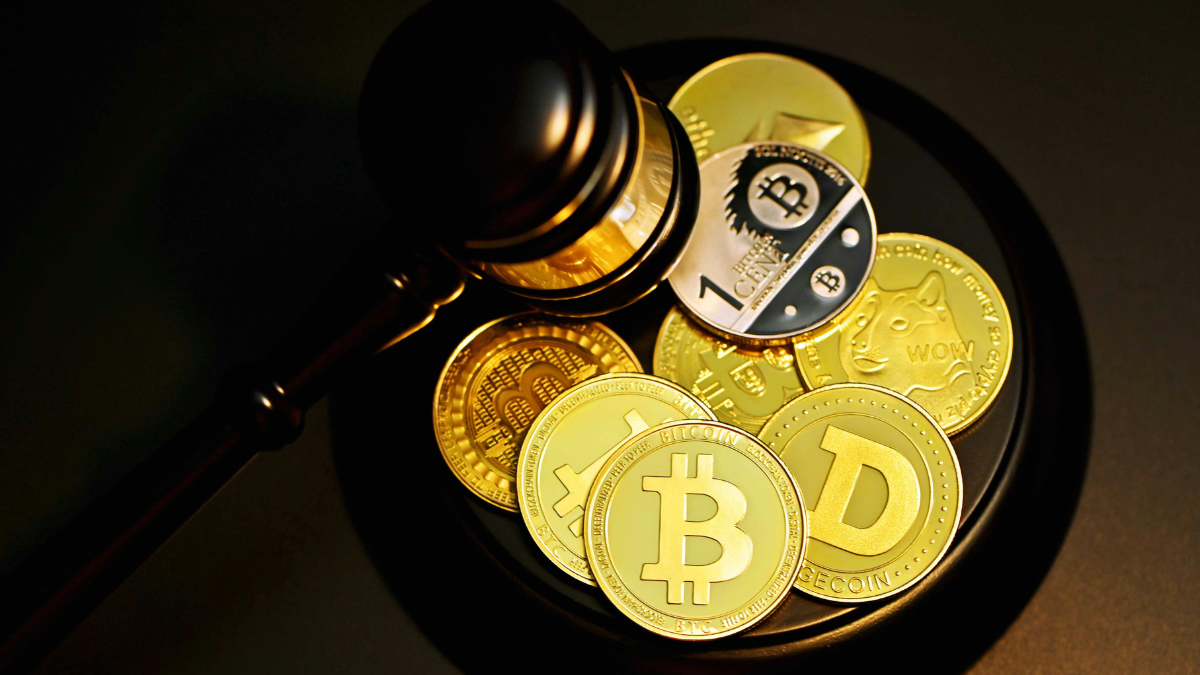- Home
- Cryptocurrency
- Cryptocurrency News
- Madras High Court Recognises Crypto as Property: What This Means for Indian Investors
Madras High Court Recognises Crypto as Property: What This Means for Indian Investors
India’s Madras High Court ruling grants cryptocurrencies property status, setting a precedent for digital asset ownership.

Photo Credit: Unsplash/Kanchanara
Court decision brings long-awaited clarity to India’s crypto ownership
In a landmark decision that could reshape India's digital finance landscape, the Madras High Court has officially recognised cryptocurrency as property under Indian law. Judge N. Anand Venkatesh's decision, which gives India's growing cryptocurrency ecosystem a much-needed legal clarity, rules that digital assets like Bitcoin, Ethereum, and XRP can be owned, transferred, and held in trust. The judgment marks the first time an Indian court has directly classified cryptocurrency as a form of property, giving investors and businesses a firmer legal footing for transactions and dispute resolution.
Madras High Court Ruling Brings Legal Clarity to Digital Assets in India
The case that led to this ruling, Rhutikumari V. Zanmai Labs Ovt. Ltd (WazirX), involved a dispute over 3,532.30 XRP tokens allegedly transferred without authorisation from the petitioner's account on the WazirX exchange. The petitioner asked the court to recognise cryptocurrencies as property with legal protections to obtain judicial protection for her holdings.
In his judgment, Justice N. Anand Venkatesh ruled that while cryptocurrency is not legal tender, it possesses the essential characteristics of property as it can be owned, transferred, and held in trust. Furthermore, the court issued a temporary order that prohibited the contested assets from being transferred or dissolved in any way.
For Indian investors, this ruling provides stronger legal protection. It clearly establishes ownership rights and enables investors to seek legal recourse in cases of fraud, misuse, or exchange failures. Since exchanges will now have to adhere to stricter standards of transparency and custodial responsibility, just like traditional financial institutions, this development is anticipated to boost investor confidence in the market.
Edul Patel, CEO of Mudrex, said the judgment marks a win for investor safety and signals the need for a balanced approach to regulation. “Moving forward, India's regulatory approach will need to find a balance between investor protection and technological advancement. A nuanced framework that differentiates between tokens used for governance, payments, or innovation will be essential to support responsible growth and position India as a forward-looking participant in the global digital economy,” Patel told Gadgets 360.
Avinash Shekhar, Co-Founder and CEO of Pi42, told Gadgets 360 that the ruling reflects a maturing perspective on digital assets within India's financial system. “ It suggests a maturing perspective on this evolving asset class and indicates that cryptocurrencies are beginning to be seen as having legitimate economic relevance within existing legal and financial frameworks. While it does not change the current regulatory landscape, the ruling could help create a more informed environment for investors and market participants,” Shekhar explained.
Legal expert Chandan Goswami, Partner at AT& Partners, noted in a LinkedIn post that while the decision is groundbreaking, it may still face scrutiny. “The ruling is not bulletproof. It could face scrutiny before the Supreme Court on several grounds. For instance, one may argue that the HC overstepped its jurisdiction by entertaining a Section 9 petition despite a foreign seat (read BALCO judgement) [...] How firmly it holds will depend on what the Supreme Court does if the order is challenged,” Goswami said.
The Madras High Court's ruling represents a turning point in India's legal treatment of cryptocurrencies by bringing the country into line with nations like Singapore, the UK, and the US, where digital assets are acknowledged as property. However, questions remain about its long-term implications and whether the Supreme Court will uphold the interpretation.
While some industry experts see the decision as a sign of maturity and advancement for India's digital asset ecosystem, others warn that the lack of a comprehensive regulatory framework may make legal recognition inadequate to guarantee market stability or investor safety.
For the latest tech news and reviews, follow Gadgets 360 on X, Facebook, WhatsApp, Threads and Google News. For the latest videos on gadgets and tech, subscribe to our YouTube channel. If you want to know everything about top influencers, follow our in-house Who'sThat360 on Instagram and YouTube.
Related Stories
- Samsung Galaxy Unpacked 2025
- ChatGPT
- Redmi Note 14 Pro+
- iPhone 16
- Apple Vision Pro
- Oneplus 12
- OnePlus Nord CE 3 Lite 5G
- iPhone 13
- Xiaomi 14 Pro
- Oppo Find N3
- Tecno Spark Go (2023)
- Realme V30
- Best Phones Under 25000
- Samsung Galaxy S24 Series
- Cryptocurrency
- iQoo 12
- Samsung Galaxy S24 Ultra
- Giottus
- Samsung Galaxy Z Flip 5
- Apple 'Scary Fast'
- Housefull 5
- GoPro Hero 12 Black Review
- Invincible Season 2
- JioGlass
- HD Ready TV
- Laptop Under 50000
- Smartwatch Under 10000
- Latest Mobile Phones
- Compare Phones
- OnePlus Ace 6
- Lava Shark 2 G
- OnePlus 15
- Redmi K90
- Redmi K90 Pro Max
- Nubia Z80 Ultra
- Realme GT 8
- Realme GT 8 Pro
- MacBook Pro 14-inch (M5, 2025)
- Asus Vivobook S16 (S3607QA)
- iQOO Pad 5e
- OPPO Pad 5
- Garmin Venu X1
- Redmi Watch 6
- Xiaomi TV S Pro Mini LED 2026 (98-Inch)
- Xiaomi Xiaomi TV S Pro Mini LED 55 2026
- Asus ROG Ally
- Nintendo Switch Lite
- Haier 1.6 Ton 5 Star Inverter Split AC (HSU19G-MZAID5BN-INV)
- Haier 1.6 Ton 5 Star Inverter Split AC (HSU19G-MZAIM5BN-INV)

















